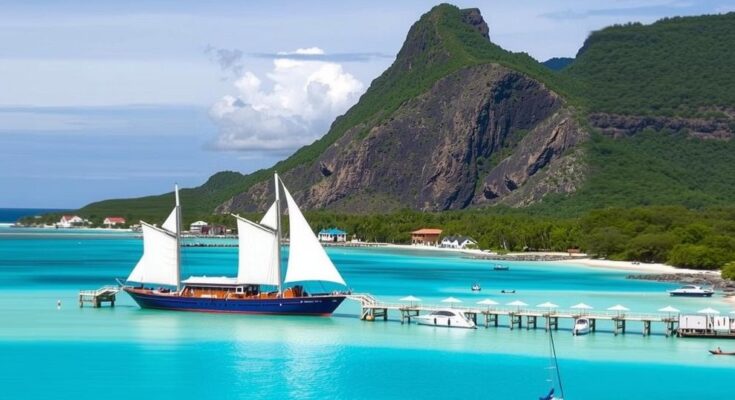Mauritius is revisiting talks with the UK over the Chagos Islands, aiming to renegotiate a recently agreed-upon deal seen as inadequate. The UK’s previous agreement acknowledged Mauritian claims while maintaining military control over Diego Garcia. Chagossians, who were expelled decades ago, feel sidelined in negotiations and criticize ongoing British control, intensifying debates surrounding sovereignty and rights in the region.
Mauritius is seeking to reopen negotiations with the United Kingdom regarding the contentious Chagos Islands deal, which may jeopardize the accord initially agreed upon in October. Following elections that brought new leadership in Mauritius, Prime Minister Navin Ramgoolam mandated a reassessment of the recent agreement, asserting that the proposed terms did not align with the island nation’s anticipated benefits. The Chagos Islands, formerly administered alongside Mauritius, were designated a British territory in 1965, and the UK retains authority over Diego Garcia, home to a significant U.S. military base.
Independence was granted to Mauritius in 1968, yet British control of Chagos persisted. This control led to the expulsion of approximately 2,000 Chagossians between 1968 and 1973, an act regarded as “a crime against humanity” by Human Rights Watch. While Mauritius has challenged British dominion in the International Court of Justice, which opined in favor of Mauritius in 2019, the UK continued to dispute its sovereignty claims. The situation shifted with the UK’s October 2024 pronouncement, which indicated a transfer of sovereignty to Mauritius, albeit while retaining military jurisdiction over Diego Garcia for an extended period.
The new arrangement remains contentious, particularly among Chagossians who feel excluded from negotiations and those advocating for the annulment of the deal. Bernadette Dugasse, a Chagossian, expressed her frustrations regarding the ongoing plight of her people, stating, “They say the negotiations are between states and we are not a state. Who made us stateless in the first place?” Olivier Bancoult, leader of the Chagos Refugees Group, voiced cautious optimism about the ongoing discussions despite administrative changes in Mauritius.
The uncertainty surrounding the Chagos marine protected area established by the UK in 2010 adds another layer of complexity. Critics argue that the creation of this marine territory was a tactic to prevent Chagossians from accessing their traditional fishing zones. Notably, the recent agreement suggests the establishment of a Mauritian-managed marine protected area. A joint statement released on December 20 by both nations confirmed their commitment to securing a treaty that would pave the way for the governance of the Chagos Archipelago while ensuring military operations could continue at Diego Garcia.
However, the Mauritian Prime Minister’s office has thus far refrained from commenting on ongoing inquiries regarding these developments, leaving many relevant parties eager for clarity on the matter.
The Chagos Islands are situated in the Indian Ocean and were historically linked to Mauritius until the UK altered their status in the mid-20th century. The islands have been a focal point of sovereignty disputes, particularly since the establishment of a significant U.S. military base on Diego Garcia, the largest island in the group. The expulsion of Chagossians during the UK’s reign remains a contentious historical issue, leading to calls for justice and rights for those displaced. The International Court of Justice’s supportive stance towards Mauritius and the subsequent negotiations reflect enduring colonial legacies and the complexities of international treaties. The struggle for recognition and rights among the Chagossians complicates the diplomatic landscape, as the UK and Mauritius navigate these sensitive negotiations.
The reopening of negotiations between Mauritius and the UK regarding the Chagos Islands represents a significant development in the ongoing dispute over sovereignty and the rights of displaced individuals. The complex historical context of British control, coupled with the exclusion of Chagossians from discussions, raises ethical concerns about the legitimacy of any agreement reached. As both nations commit to finalizing a treaty, it remains essential to consider the perspectives of the Chagossians, as their struggle for recognition is poignant in the broader context of post-colonial reparations and justice.
Original Source: news.mongabay.com




